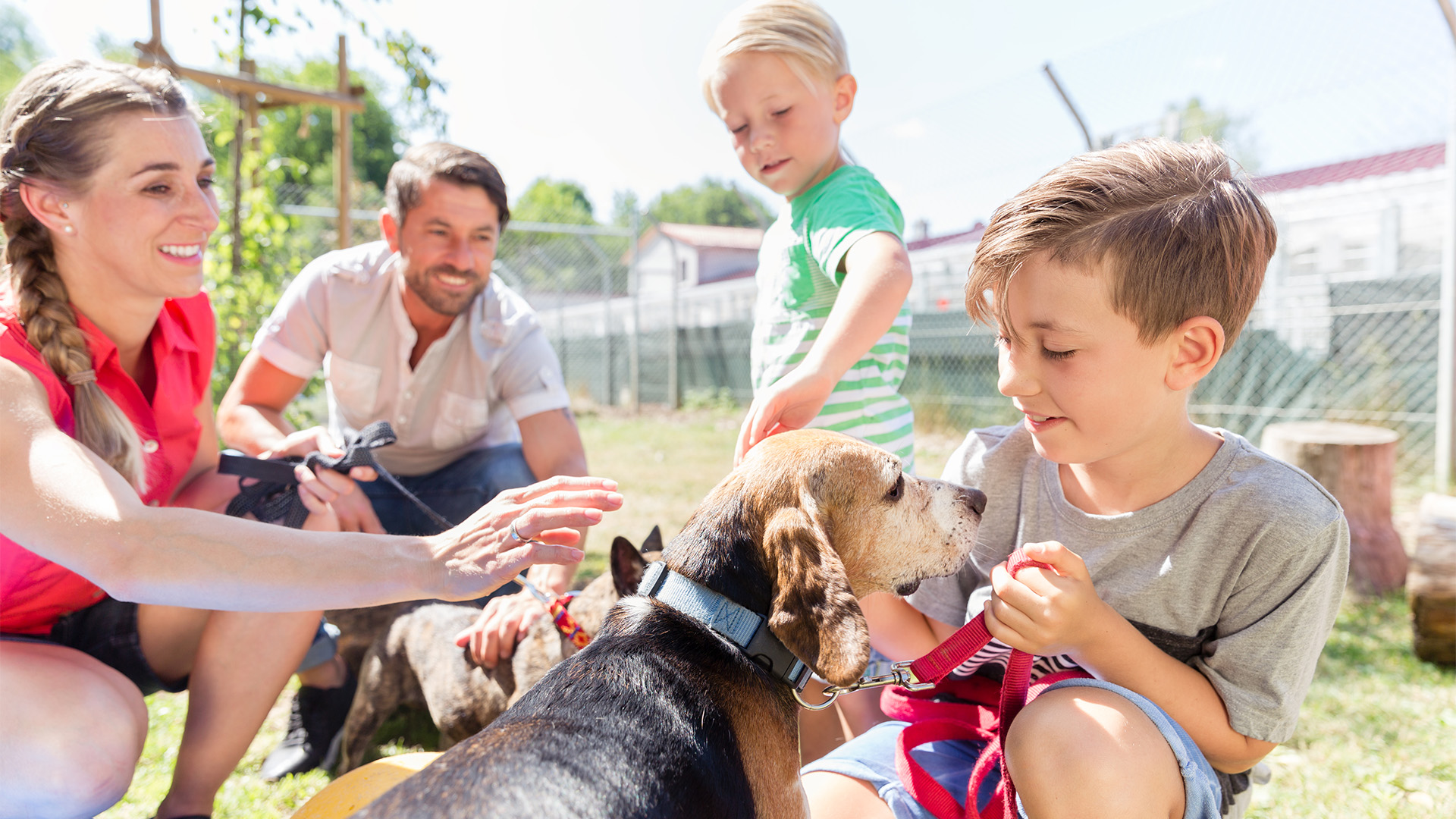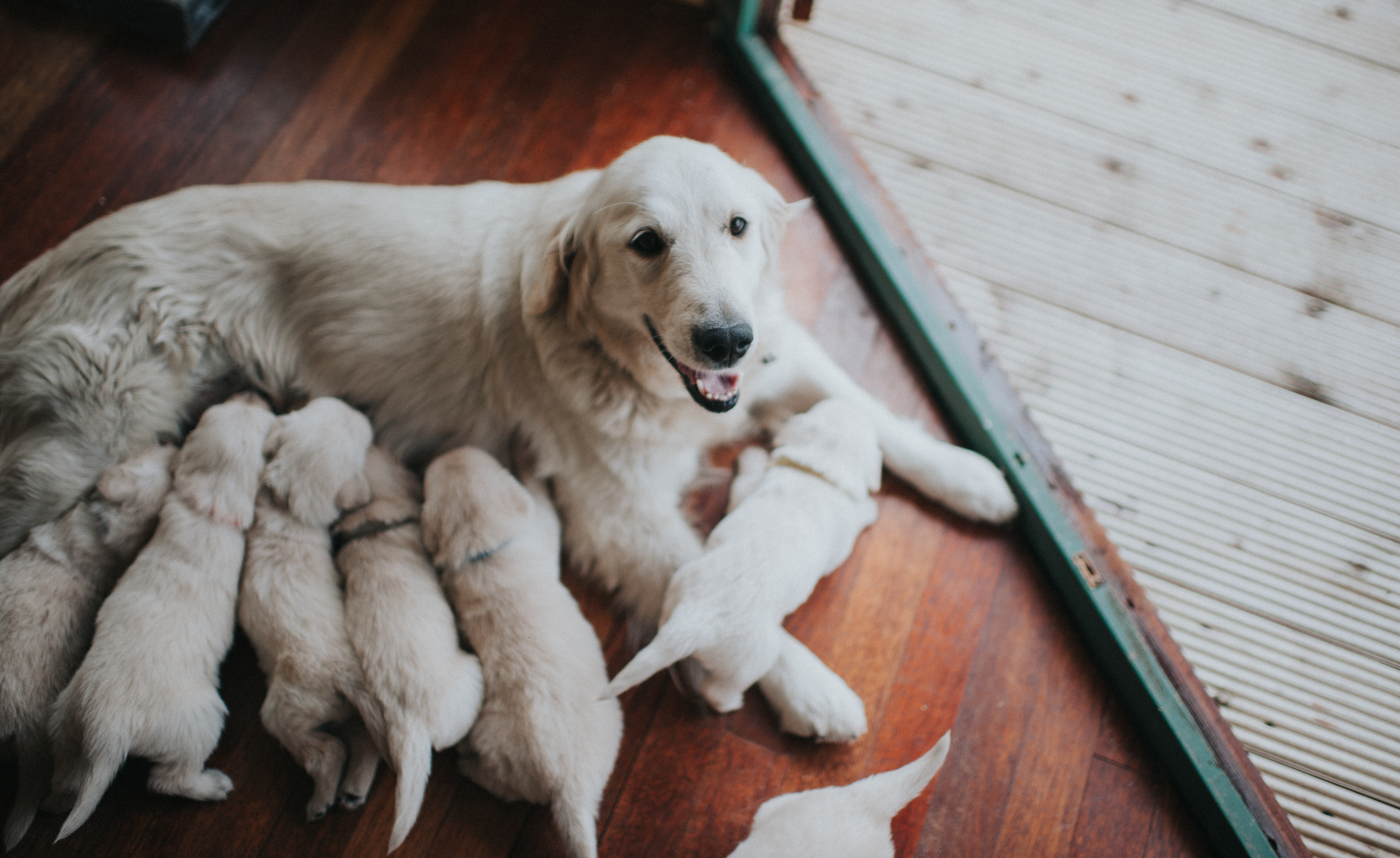Expert shares 4 tips for choosing the right dog for your family
Breed is important, but it isn’t the only factor…

Get the best advice, tips and top tech for your beloved Pets
You are now subscribed
Your newsletter sign-up was successful
Even choosing to get a dog in the first place is a big decision for a family to make, so deciding on which dog can be even more difficult.
There’s so much to consider. You might have favorite breeds – perhaps those you grew up with as a child yourself – or be weighing up whether to opt for a puppy or an older dog. Of course, breed is a factor that most people will – and should – consider, but one expert claims that there are actually better things to focus on.
Indeed, Rosie Bescoby, a qualified and practicing dog behaviorist working with Pure Pet Food, believes that upbringing and training are more important than finding the best family dog breeds. It goes against a lot of popular thinking, so let’s take a look at what she believes.
“The foundation of a dog’s temperament is laid in their genetics and those crucial first weeks of life,” Rosie begins. “A responsible breeder will prioritize calm, well-adjusted parents and provide puppies with consistent exposure to different environments and people, including children. This early experience shapes confidence, resilience, and the ability to thrive in a busy family setting far more than breed alone.”

Bescoby explains that all dogs could potentially bite somebody if they feel scared or threatened, and that there’s no “bite-proof” dog out there. It’s important to be a responsible dog parent, reading dog body language and behavior and making sure that children learn to interact with dogs calmly and respectfully.
To that end, the experts at Pure Pet Food have these four key tips to remember when choosing a family dog:
1. Choose a responsible breeder: If you’re buying from a breeder rather than adopting, ensure you find a responsible one by visiting their home first and meeting the puppy’s parents to observe their temperaments. The breeder should be happy to share details including health records with you.
Get the best advice, tips and top tech for your beloved Pets
2. Ask about training and socialization: Puppies who’ve been raised in calm environments with exposure to sounds and people will grow into confident dogs. It’s well worth asking the breeder about their socialization schedule, and interactions with children and other pets.
3. Teach children how to behave around dogs: Choosing the right dog is one thing, but it’s just as important to teach children how to behave around them (and here’s how to introduce a dog to a baby). Teach them about dog body language, and establish rules like not approaching the dog when they’re eating or sleeping.
4. Ensure adult supervision: Young children should never be left alone with dogs, even small puppies or calm and gentle senior dogs. Supervising them at all times is vital to keep everyone safe, but it also gives you great opportunities to talk about the dog together and teach them more about dog body language and signals.
Read next: 12 things you should know about having a baby when you’ve already got a dog

Adam is a freelance journalist specialising in pets, music and culture, and mental health and wellbeing. He investigates and writes the large majority of news on PetsRadar, and collaborates with veterinary experts to produce informative pet care content.
Adam has a journalism degree from Southampton Solent University and a masters degree in Magazine Journalism from Cardiff University. He was previously senior editor at dog advice website DogTime.com, and has also written for The Independent, GoodToKnow and Healthline.
He owns two rescue cats, Bunny and Dougie, and has also previously had a rabbit, fish and Roborovski dwarf hamsters.
